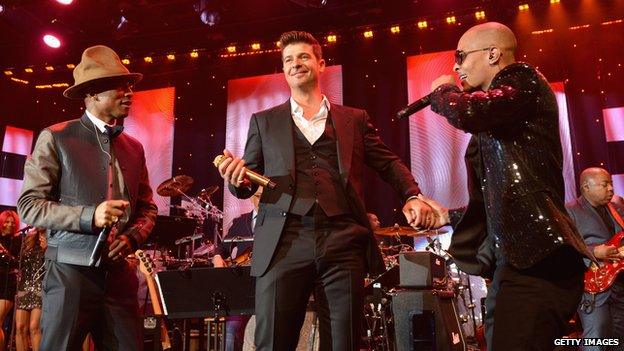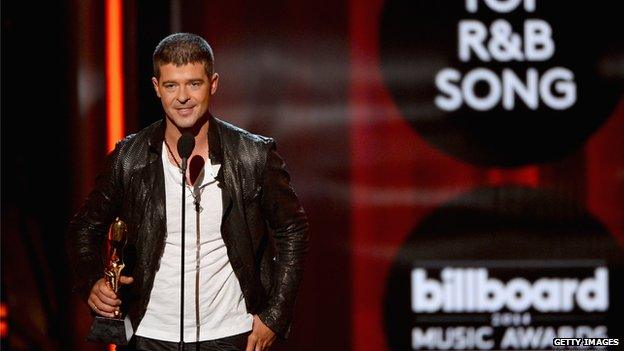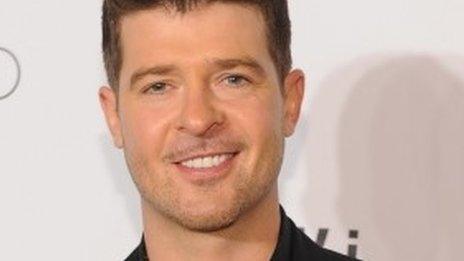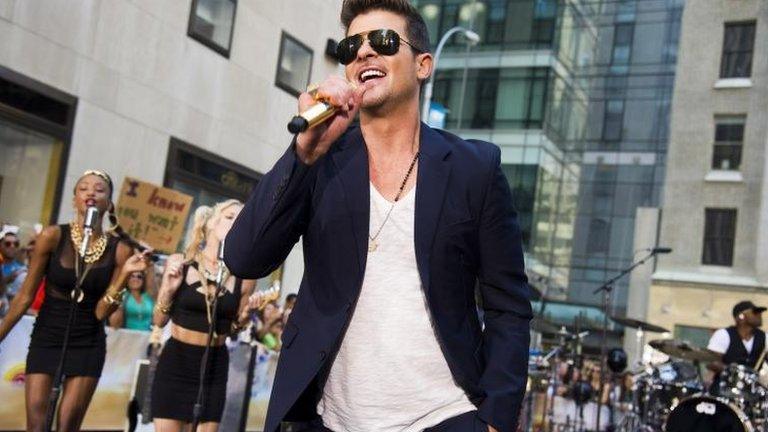Robin Thicke's Blurred Lines made $16m
- Published

Pharrell Williams, Robin Thicke and TI perform Blurred Lines in January 2014
Robin Thicke and Pharrell Williams made more than $5m (£3.26m) each from Blurred Lines, according to figures revealed during a copyright trial.
Total profits for the biggest track of 2013 are $16.68m (£10.87m), with rapper TI getting a $704,000 (£459,000) share according to the Hollywood Reporter, external.
The trio are being sued for copyright infringement by Marvin Gaye's family, over similarities to Got to Give It Up.
They are seeking money from sales and touring, as well as damages.
According to testimony from damages experts in court in Los Angeles, singer Thicke received $5.66m (£3.69m) from the song's profits.
Williams got a total of $5.15m (£3.36m) - $4.3m of it from publishing royalties, and a further $860,000 for producer royalties.
Thicke, Williams and rapper TI - real name Clifford Harris Jr - deny copying Gaye's 1977 hit.
They have previously insisted there are no similarities "other than commonplace musical elements" and claim the track was created "without copying anyone else's composition".
The financial details of the music industry and the profitability of individual tracks usually remain a closely guarded secret.
But they have been revealed in this instance as Gaye's children, Frankie and Nona, seek a substantial amount of income and damages for lost licensing revenue.

Thicke at the 2014 Billboard Music Awards, where Blurred Lines was named top R&B song
CAA (Creative Artists Agency), who represent Thicke, was served with a subpoena over details of his income.
This revealed that an estimated $11m (£7.17m) of his touring income was attributable to the success of Blurred Lines.
After Thicke, Williams and TI received their share of profits, the rest of the $16.68m was divided between record companies Interscope, Universal Music Group Distribution (UMGD) and Star Trak.
An executive at Universal Music testified that the track's overhead costs accounted for $6.9m (£4.5m).
During opening arguments, a lawyer for the Gayes estimated damages at $40m (£26m).
A second song, Thicke's Love After War, is also being contested at the trial. The Gayes claim it is similar to another Marvin Gaye track, After the Dance, which Thicke also denies.
The trial continues.
- Published21 April 2014

- Published31 October 2013

- Published16 August 2013
